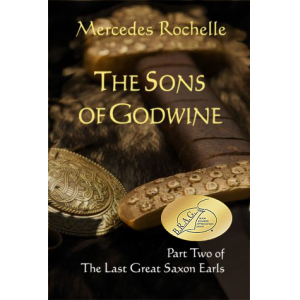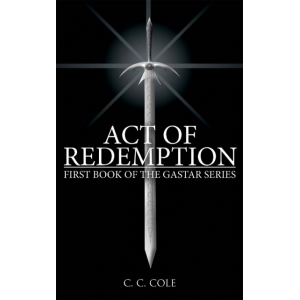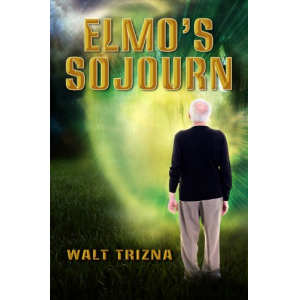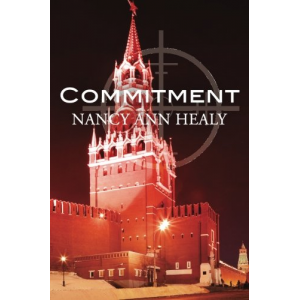- Author
- Book
- Story behind the book
- Media Links
- Reviews

Michael Amram
About
I've retired from the corporate world America loves so much. In 2012, after 14 years of releasing medical records, I am focused on releasing things I create. I am the Indie author of the novel The Orthodoxy of Arrogance and poetry book Scenes the Writer Shows {forty-one places a poem can go}. I have been published by various online magazines and anthologies. My second novel, Agent of Orange, came out in February of 2014. A collection of 60 poems relating to chosen veins of human existence (marriage, politics, religion, technology, ect.), When Monkeys feel Rhythms, was published in June of 2014.

The Sons of Godwine: Part Two of The Last Great Saxon Earls
Description
<p>Emerging from the long shadow cast by his formidable father, Harold Godwineson showed himself to be a worthy successor to the Earldom of Wessex. In the following twelve years, he became the King's most trusted advisor, practically taking the reins of government into his own hands. And on Edward the Confessor's death, Harold Godwineson mounted the throne—the first king of England not of royal blood. Yet Harold was only a man, and his rise in fortune was not blameless. Like any person aspiring to power, he made choices he wasn't particularly proud of. Unfortunately, those closest to him sometimes paid the price of his fame.<br /><br />This is a story of Godwine's family as told from the viewpoint of Harold and his younger brothers. Queen Editha, known for her Vita Ædwardi Regis, originally commissioned a work to memorialize the deeds of her family, but after the Conquest historians tell us she abandoned this project and concentrated on her husband, the less dangerous subject. In THE SONS OF GODWINE and FATAL RIVALRY, I am telling the story as it might have survived had she collected and passed on the memoirs of her tragic brothers.<br /><br />This book is part two of The Last Great Saxon Earls series. Book one, GODWINE KINGMAKER, depicted the rise and fall of the first Earl of Wessex who came to power under Canute and rose to preeminence at the beginning of Edward the Confessor's reign. Unfortunately, Godwine's misguided efforts to champion his eldest son Swegn recoiled on the whole family, contributing to their outlawry and Queen Editha's disgrace. Their exile only lasted one year and they returned victorious to London, though it was obvious that Harold's career was just beginning as his father's journey was coming to an end.<br /><br />Harold's siblings were all overshadowed by their famous brother; in their memoirs we see remarks tinged sometimes with admiration, sometimes with skepticism, and in Tostig's case, with jealousy. We see a Harold who is ambitious, self-assured, sometimes egocentric, imperfect, yet heroic. His own story is all about Harold, but his brothers see things a little differently. Throughout, their observations are purely subjective, and witnessing events through their eyes gives us an insider’s perspective.<br /><br />Harold was his mother's favorite, confident enough to rise above petty sibling rivalry but Tostig, next in line, was not so lucky. Harold would have been surprised by Tostig's vindictiveness, if he had ever given his brother a second thought. And that was the problem. Tostig's love/hate relationship with Harold would eventually destroy everything they worked for, leaving the country open to foreign conquest. This subplot comes to a crisis in book three of the series, FATAL RIVALRY.</p>
Story Behind The Book
When Monkeys feel Rhythms is a compilation of sixty poems. Each fit a relation to life we all know. The poems evolved. It was serendipity that this collection gels together to tell a story, to read like a grocery list of caveats to pass by in the supermarket of life.
Media Links
Reviews
<p>Amazon Customer review</p> <p>Multi-layered and enjoyable</p> <p>Ellen L-7/9/14</p> <p>~The poems in Michael Amram’s evocatively titled When Monkeys Feel Rhythms range from humorous to gritty. Grouped in sections—spatial relationships, religion, politics, friendship, marriage, aging and technology—the compact verses paint a concrete picture in the reader’s mind while turning mundane objects lyrical. The poems can be relished literally before letting the mind interpret and interpolate what the poet says using the ordinary to explore the extraordinary. One of my favorites can be found in Labors of Fruits: “she intended to live to a ripe age; like a banana does with spots and sweet smells that would arouse what senses were dulled.”<br /> One of the delights of When Monkeys Feel Rhythms is Amram’s clever word plays. In Squeeze Play, for example, a fired employee is given an accordion file and riffs on adopting a monkey to earn coins in the street. In Hands That Fold Empty, a line about mustard stains is followed by one about planting seeds in minds. As Wheels Turned remembers a time “when gray mattered and earth was ripe to plant seeds that grew once to stem a brain.”<br /> While Amram’s young mixologist friend in Limestone Ruins may spike his drinks with tea and offer mugs of kindness, the poems in When Monkeys Feel Rhythms spike the mind with beauty and offer mugs of reflection.</p> <p> </p> <p>~~</p> <p><br /> 5.0 out of 5 stars A great read from the interesting title to the last poem., August 16, 2014</p> <p> </p> <p>By</p> <p>Mary Jo Reed</p> <p><br /> This review is from: When Monkeys Feel Rhythms (Paperback)</p> <p>I enjoyed reading Michael's poetry book. There is a such a wide variety of topics. Everything from religion, to politics, to technology, something for everyone. He has a unique outlook on life which I like learning about. I highly recommend his book to poetry lovers.</p>





